Covid Token Airdrop Scam Checker
This tool helps you evaluate whether a claimed Covid Token airdrop is legitimate or potentially fraudulent. Answer the questions below to get an assessment.
Answer the questions above to see if this airdrop claim is likely legitimate or a scam.
Legitimate vs Scam Red Flags
You've probably seen the buzz about a Covid Token airdrop and wonder if it’s real, how to qualify, and whether your crypto stash is at risk. This guide pulls together everything you need to know right now - from what an airdrop usually looks like, to the red flags that signal a scam, and the exact steps to verify any claim.
TL;DR
- There is no verified public information about a Covid Token (COVIDTOKEN) airdrop on major tracking sites.
- Legitimate airdrops use wallet snapshots, clear eligibility rules, and official communication channels.
- Watch out for private messages, upfront fees, and vague promises - they are common scam tactics.
- Always confirm details on the project's official website, verified social media, and reputable platforms like CoinGecko.
- Use a secure wallet, enable two‑factor authentication, and never share your private keys.
What is Covid Token (COVIDTOKEN)?
Covid Token is advertised as a cryptocurrency that aims to fund health‑related initiatives through blockchain transparency. The token symbol often appears as COVIDTOKEN. No major exchange lists it, and the project’s whitepaper has not been indexed by mainstream data aggregators.
How a Typical Crypto Airdrop Works
Even if a specific Covid Token airdrop isn’t listed, understanding the standard process helps you spot authenticity. Most airdrops follow these steps:
- Snapshot - the project records blockchain balances at a predetermined block height.
- Eligibility is calculated based on holdings, activity, or completion of simple tasks.
- Tokens are distributed to eligible wallets, often within a few weeks after the snapshot.
- Recipients can claim the tokens via a web portal or automatically receive them in their wallets.
Key attributes of a legitimate airdrop include a public roadmap, clear tokenomics, and a transparent distribution schedule.
Red Flags - How to Spot a Covid Token Airdrop Scam
Scammers exploit the hype around new tokens by promising free coins in exchange for personal data or upfront payments. Below is a quick checklist you can run through before you click any link.
| Legitimate Sign | Scam Red Flag |
|---|---|
| Official website with SSL (https) and clear contact info | Landing pages that mimic legit sites but use misspelled domains |
| Transparent tokenomics published in a whitepaper | Vague or missing token supply details |
| Announcement on verified social media (Twitter checkmark) | DMs from unknown accounts asking for wallet private keys |
| No fee required to claim | Requests for ETH, BNB or other crypto to “unlock” the airdrop |
| Listed on reputable trackers like CoinGecko or CoinMarketCap | Only mentioned on obscure forums or random Telegram groups |
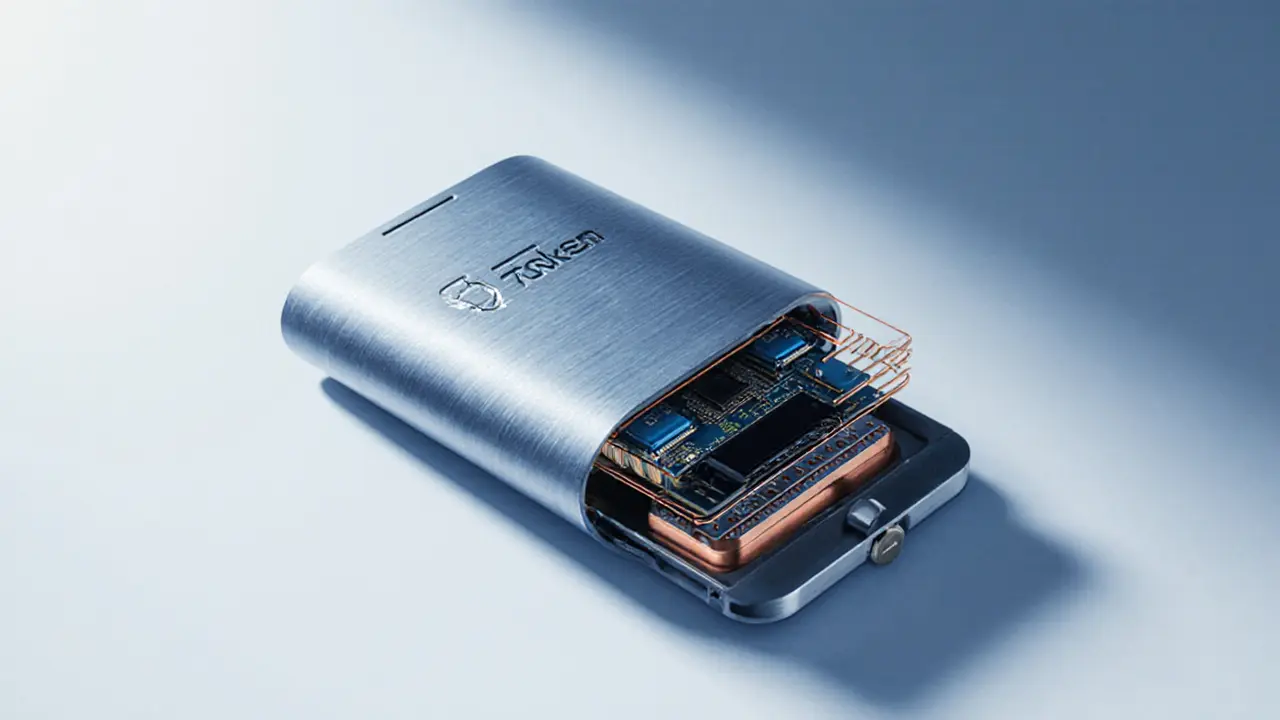
Step‑by‑Step: Verifying Any Covid Token Airdrop Claim
Follow this practical workflow before you invest time or money.
- Check the official domain. Look for https, a proper SSL certificate, and an "About" page that explains the token's purpose.
- Search reputable trackers. Type the token name into CoinGecko, CoinMarketCap, or TokenMetrics. If nothing appears, treat the claim with caution.
- Confirm social media authenticity. Verify the project's Twitter, Telegram, and Discord handles. Official accounts usually have a blue check or are linked from the website.
- Read the whitepaper. It should detail token supply, distribution mechanics, and use of funds. Absence of a whitepaper is a red flag.
- Analyze the snapshot criteria. Legitimate airdrops disclose the block height, eligible chains, and minimum holding amounts.
- Test with a small amount. If a claim asks you to send any crypto, never comply. Real airdrops never require a payment to receive tokens.
- Secure your wallet. Use a hardware wallet or a reputable software wallet, enable two‑factor authentication, and never share your private key or seed phrase.
Common Questions About Covid Token Airdrops
Below are the most frequent doubts users raise. If you have a different query, the FAQ section at the end might already have the answer.
- Can I claim Covid Token without holding any other crypto? - Usually not; most airdrops require a baseline holding of a major coin (e.g., ETH, BNB).
- Is there a deadline for the Covid Token airdrop? - No public deadline exists; any claim would be announced on official channels.
- Do I need to pay gas fees to receive the airdrop? - Yes, claiming on Ethereum‑compatible networks requires a small gas fee, but the project never asks for pre‑payment.
- How can I report a suspicious Covid Token airdrop? - Use the report function on platforms like CoinGecko or contact your local consumer protection agency.
What to Do If You’ve Already Sent Crypto to a Supposed Covid Token Airdrop
If you’ve fallen for a scam, act fast:
- Immediately stop any further transactions from the compromised address.
- Report the incident to the exchange or wallet provider you used.
- File a report with the local financial regulator - in NewZealand, that’s the Financial Markets Authority.
- Consider moving remaining assets to a fresh, secure wallet with a new seed phrase.
- Stay informed about future scams by following official crypto security blogs.
Unfortunately, blockchain transactions are irreversible, but notifying the community can help prevent others from being duped.
Bottom Line - Stay Skeptical, Stay Secure
At the time of writing (October22025), there is no verifiable Covid Token airdrop listed on any major platform. That doesn’t mean the project can’t launch one later, but it does mean you should treat every claim with the same level of scrutiny you would apply to any new crypto offering. Use the verification checklist, keep your wallet safe, and rely on trusted sources before you chase any free token promise.
Frequently Asked Questions
What is the official website for Covid Token?
As of now, no official website has been verified by reputable trackers. Always look for an SSL‑secured domain and links back from known social media accounts before trusting any site.
Do I need to hold a specific cryptocurrency to be eligible?
Most airdrops require a baseline holding of a major blockchain token (like ETH or BNB) at the snapshot time. Without official details, you can’t confirm any exact requirement for Covid Token.
Is there any fee to claim a legitimate airdrop?
A genuine airdrop may require you to pay a small gas fee to interact with the claim contract, but the project never asks for an upfront payment to receive the tokens.
How can I differentiate a real airdrop announcement from a phishing post?
Check the source: official Twitter with a verification badge, a website listed on CoinGecko, and a clear, public snapshot block. Phishing posts often use urgent language, demand private keys, or ask for payment.
What should I do if I suspect a Covid Token airdrop is a scam?
Stop interacting with the address, report the incident to your wallet provider, and file a complaint with local authorities. Share the warning on community channels to protect others.
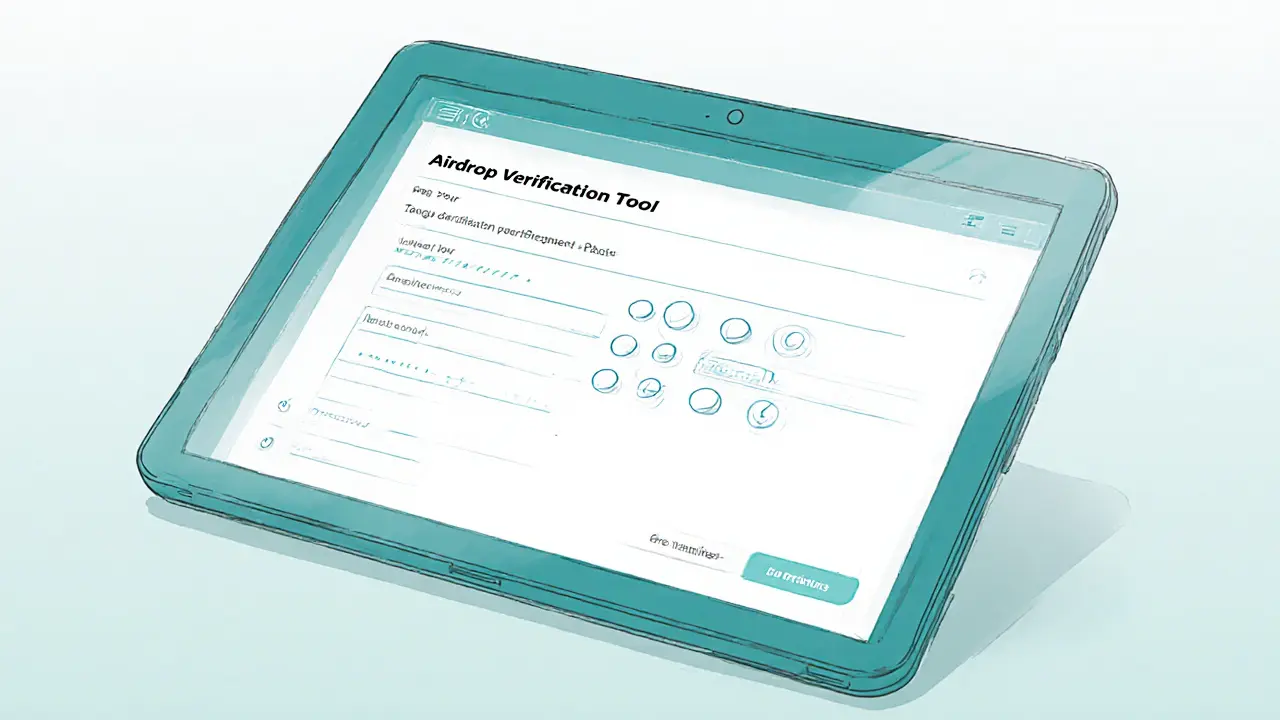
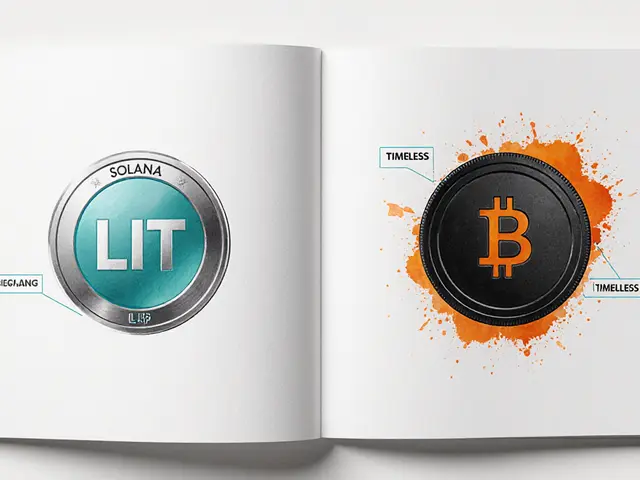
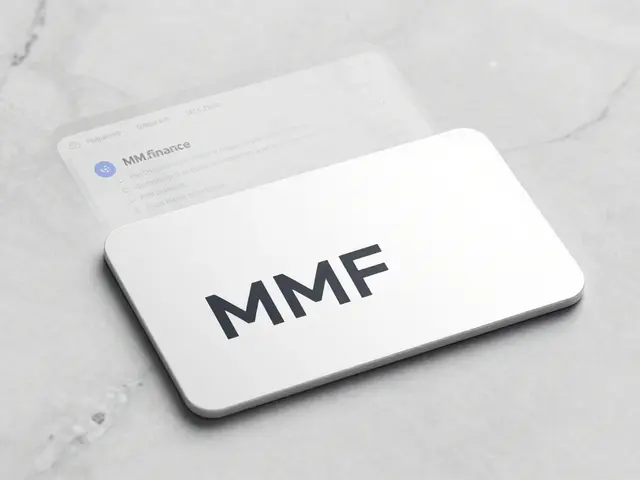
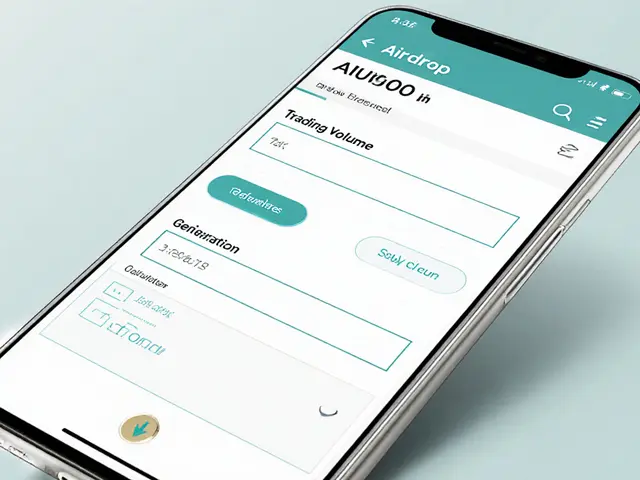
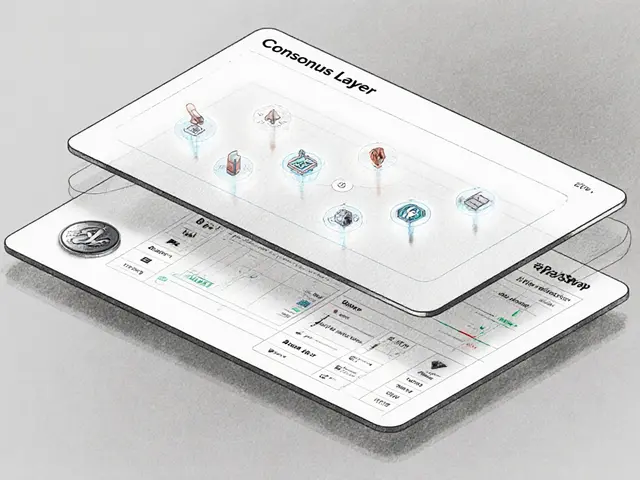
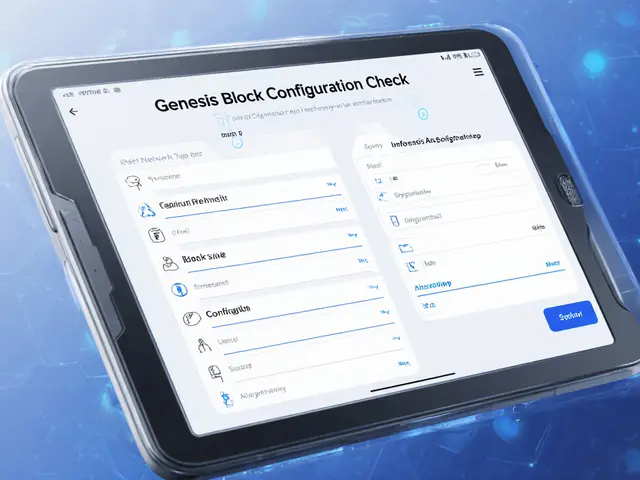
Anne Zaya
18 March, 2025 . 09:02 AM
Hey folks, just a heads‑up: if you see a Covid Token airdrop that asks for any kind of payment, walk away – legit airdrops never charge you up front.
Emma Szabo
18 March, 2025 . 10:26 AM
Exactly, Anne! 🌈 Think of it like a rainbow of red flags: misspelled domains, urgent "send ETH now" messages, and the lack of a solid whitepaper are all signs you’re staring at a scam.
Fiona Lam
18 March, 2025 . 11:49 AM
Stop falling for these phishing tricks, people! If it’s not on CoinGecko or has no verified Twitter, it’s a total waste of time.
OLAOLUWAPO SANDA
18 March, 2025 . 13:12 PM
Yo, I’m telling you, these scammers are just trying to take our crypto. Real projects never ask for your private key, simple as that.
Sumedha Nag
18 March, 2025 . 14:36 PM
Honestly, who even cares about a token named after a pandemic? It’s just another gimmick to pull in hype and then vanish.
Holly Harrar
18 March, 2025 . 15:59 PM
FYI, if you see a site with http not https, that’s a red flag. Also, double‑check the socials – legit projects link back to their official pages.
Vijay Kumar
18 March, 2025 . 17:22 PM
Right on, Holly! Keep your wallet secure, enable 2FA, and always read the fine print. A tiny gas fee is normal, but never send a big chunk before you’ve verified everything.
Edgardo Rodriguez
18 March, 2025 . 18:46 PM
When diving into the murky waters of alleged Covid Token airdrops, one must first establish a solid foundation of due diligence; this begins with verifying the presence of a legitimate HTTPS‑secured domain, which, as a rule, serves as a primary indicator of authenticity.
Second, a thorough scan of reputable trackers such as CoinGecko or CoinMarketCap is indispensable, since legitimate projects are invariably listed there, providing an additional layer of verification.
Third, the existence of a transparent whitepaper cannot be overstated; absent a detailed tokenomics document, any claim becomes highly suspect.
Fourth, official communications should emanate from verified social media accounts-look for the blue checkmark on Twitter, which signals an authenticated source.
Fifth, be vigilant for any request demanding upfront payment; genuine airdrops never require users to send ETH, BNB, or any cryptocurrency to "unlock" rewards.
Sixth, scrutinize the snapshot criteria: a credible airdrop will disclose the exact block height and eligible chains, enabling participants to confirm their eligibility.
Seventh, understand that legitimate airdrops may involve minimal gas fees to claim tokens, yet these fees are typically small and do not constitute a pre‑payment.
Eighth, safeguard your private keys at all costs; no legitimate project will ever ask for them, and sharing them equates to surrendering full control of your assets.
Ninth, maintain a habit of checking community forums and reputable news outlets for any reports of fraudulent activity surrounding the token in question.
Tenth, if you encounter inconsistencies-such as misspelled domains, vague token supply details, or a lack of any official announcement-immediately cease interaction.
Eleventh, should you inadvertently send funds to a suspicious address, act swiftly: halt further transactions, report the incident to your exchange, and consider notifying regulatory bodies.
Twelfth, always keep your wallet software up to date to mitigate potential vulnerabilities that scammers might exploit.
Thirteenth, consider using a hardware wallet for added security, especially when dealing with unverified projects.
Fourteenth, remember that the cryptocurrency community thrives on shared knowledge; reporting scams helps protect others.
Finally, maintain a healthy dose of skepticism-if something sounds too good to be true, it probably is.
mudassir khan
18 March, 2025 . 20:09 PM
In summary, the foregoing analysis reveals a conspicuous absence of verifiable credentials; consequently, the purported Covid Token airdrop should be classified as highly dubious, if not outright fraudulent.
Tony Young
18 March, 2025 . 21:32 PM
🚨 Scam alert! 🚨
Fiona Padrutt
18 March, 2025 . 22:56 PM
You’ve got it, Tony! Any “official” airdrop that tries to siphon off your crypto is nothing but a sham, plain and simple.
Briana Holtsnider
19 March, 2025 . 00:19 AM
Honestly, most of these tokens are just vanity projects with zero substance. If you can’t find solid data, don’t waste your time.
Corrie Moxon
19 March, 2025 . 01:42 AM
Totally agree, Briana. Stay cautious and keep your private keys locked away – better safe than sorry.
Jeff Carson
19 March, 2025 . 03:06 AM
🤔 Curious folks, have you checked the GitHub repos for any open‑source code? If there’s none, it’s a red flag. 🌟
Alex Yepes
19 March, 2025 . 04:29 AM
Indeed, Jeff, the presence of an audited smart contract, verified on Etherscan, would serve as an additional assurance of legitimacy; however, in the absence of such verification, it is prudent to exercise heightened vigilance, especially when the alleged airdrop lacks corroborative evidence from reputable aggregators.
Bianca Giagante
19 March, 2025 . 05:52 AM
In light of the foregoing, I must emphasize: verify, verify, verify; failure to do so invariably leads to loss.
Andrew Else
19 March, 2025 . 07:16 AM
Oh great, another lecture.
Susan Brindle Kerr
19 March, 2025 . 08:39 AM
It’s utterly preposterous that anyone would still fall for a token named after a global crisis; the sheer audacity of these scammers knows no bounds.
Jared Carline
19 March, 2025 . 10:02 AM
While I respect the dramatic flair, the reality remains: without verifiable credentials, any token is mere hype.
raghavan veera
19 March, 2025 . 11:26 AM
Look, if you can’t find solid proof on mainstream sites, it’s probably a trap. Keep it simple, keep it safe.
Danielle Thompson
19 March, 2025 . 12:49 PM
Stay safe, friends! 👍🚀
Eric Levesque
19 March, 2025 . 14:12 PM
Don’t be fooled – legit airdrops don’t ask for money.
alex demaisip
19 March, 2025 . 15:36 PM
From a technical standpoint, the absence of a KYC‑compliant protocol, coupled with non‑existent ledger audit trails, renders the Covid Token initiative non‑conformant with industry best practices, thereby categorizing it as a high‑risk entity.
Elmer Detres
19 March, 2025 . 16:59 PM
Remember, folks: stay vigilant, question everything, and protect your assets. 💡💪